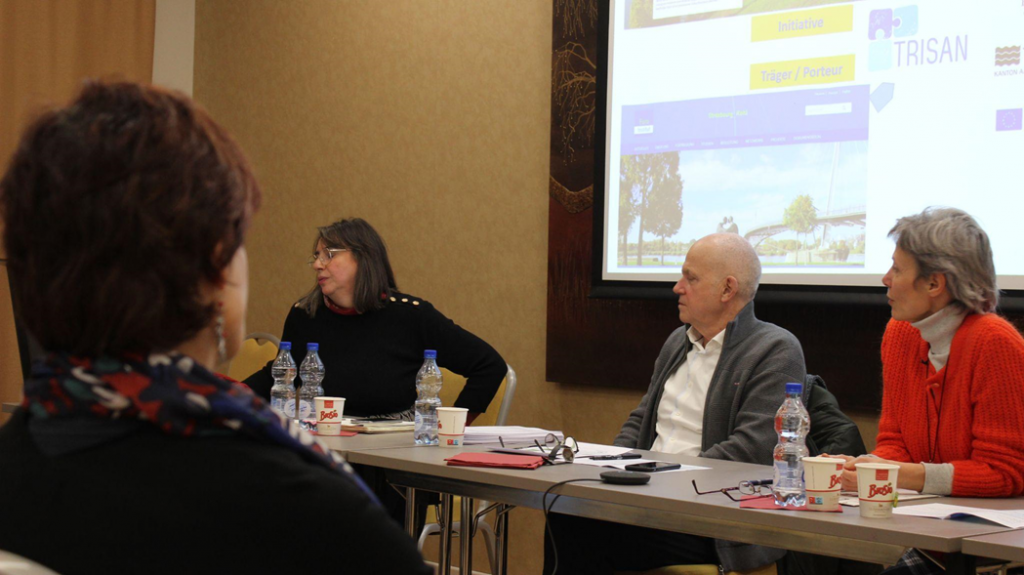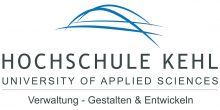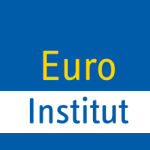Within the activities of the Jean Monnet Center and the Chair « European Narratives of the Border » of Jean Monnet Law, the first edition of Castle Talks 2023 was held on March 1 and 2, 2023.
Split between the Hochschule de Kehl and the Château de Pourtalès, it brought together seventy researchers, students and entrepreneurs. The conferences were numerous and the exchanges varied: cross-border health, Euroscepticism, cartopology or NASA programs and Catalan regionalism.
Cet article est également disponible dans la langue de Montesquieu !
As part of the Jean Monnet Chair in Law (Disputatio seminar), the first day of the Castle Talks ended with a round table of professors and students on health in the European Union and in border areas. Moderated by Frédérique Berrod, the speakers were numerous: Fabienne Leloup from the Catholic University of Louvain, Martine Camiade from the Institute of Catalan Studies, Jean-Yves Pabst, professor of pharmaceutical regulation, in Strasbourg or Anne Dussap (TRISAN).

Martine Camiade, from the Institute of Catalan Studies, opened the series of presentations that formed the basis for the roundtable discussions. Her presentation focused on the French-Spanish border and the cross-border hospital in Cerdanya. This hospital is the only one in Europe to be cross-border. It is located in a mountainous tourist region, historically shared between France and Spain, with a Spanish enclave in France (Llivia). Catalonia has competencies in health and therefore acts in concert with the French authorities.
In 2006-2010, this local hospital was created in the Spanish part (in Puigcerda) with French, Spanish and FEDER-INTERREG funding. After 20 years of agreements, it opened in 2014. A European legal instrument was created to integrate the two different health systems: the European Grouping of Territorial Cooperation (EGTC).
During the covid pandemic, the European Committee of the Regions cited the hospital as an example of cross-border cooperation: development of equipment, screening for covid, cross-border medical teams treating French and Spanish patients as well as dispatching serious patients to French and Spanish hospitals. In addition, a European perspective was built up in the hospital: care providers perceived patients as primarily European. In addition, the Barcelona Treaty, signed in 2023, further encourages cooperation.
However, this hospital still faces challenges. It must improve its links with convalescent centers and practices that are not cross-border, and the hospital has a social role: building Europe.
Anne Dussap took over from Martine Camiade to talk about the TRISAN project. This is a long-standing collaboration between the Franco-German-Swiss conference and the Euro-Institute.

The Euro-Institute has been organizing conferences on health since the 2000s. In 2014 it organized a conference on Franco-German cooperation at the request of the German government. He subsequently created the TRISAN project, a trinational center, co-financed by a group of territorial and regional authorities: the Regional Health Agency of the Grand Est / Alsace, the German regions of Baden-Würtemberg and Rhineland-Palatinate, the canton of Basel, etc.
This project aims to develop and support health cooperation. A second INTERREG 2019-2022 project continued this experience to:
– Develop a trinational cooperation plan on health (priorities, objectives, actors)
-Carry out concrete projects in epidemiology or patient mobility
The pandemic has slowed down the exchanges and activities of the project and the Health Policy Working Group which had launched TRISAN has ceased its activities. However, in autumn 2020, activities resumed on the basis of Franco-German solidarity: 125 French patients were treated in Germany. Angela Merkel has agreed to cover part of the cost of these patients, knowing that a patient in intensive care costs €4500 per day.
In the summer of 2020, the local authorities organized themselves to ask for the end of the frontierization, leading to the resumption of the activities. During the pandemic, TRISAN compared the rules in France and Germany and informed citizens about the possibility to be vaccinated in France, Germany or Switzerland.
According to Anne Dussap, the results of cross-border health activities are not very good. According to her, cross-border health cooperation is being recentralized, although the nation-states, with European policies, have realized the importance of border areas.
Jean Yves Pabst then spoke about the regulation of medicines in Europe. The subject is crucial, especially since Europe is currently experiencing a shortage: 3,000 references are out of stock out of the 15,000 referenced in France.
In Europe, the competences of the institutions are gradually being strengthened, with the European Medicines Agency (EMA) issuing Marketing Authorizations (MA), a role shared with national authorities in the case of a centralized procedure. For their part, the national authorities act during the national or mutual procedure.
Continuing his presentation, the professor addressed the parallel import operations. This system concerns pharmaceutical specialities with an authorisation in a Member State and an authorisation in France. In this case, a French person can make « parallel import ». On this subject, given that the prices of drugs vary greatly between countries, manufacturers sell to the highest bidder: Cyprus is the largest market in Europe. However, diseases and treatments are not referenced in the same way in different countries, which hinders parallel importation.
These imports are managed by a European MA, have a common European packaging and their transport is facilitated; this concerns few medicines.
Derogatory access, for medicines that do not have a marketing authorization, was also discussed. This system, which was revised in 2021, allows for early access for innovative medicines that are in the process of being developed but have positive results and for which the laboratory undertakes to file a marketing authorization application quickly.
For example: the messenger RNA vaccine against covid 19 was granted early access and could therefore be marketed without being granted marketing authorization.
A second derogatory system exists: compassionate access. It concerns drugs that meet a therapeutic need that is not covered due to a lack of research on the subject. In short: there will never be a drug for certain diseases, because no one is doing research on the disease; but patients are allowed to use another drug that has positive effects.
The lobbying of the associations of families of patients affected by rare diseases is important, which allows to lower the prices of medication.
European drug sovereignty was also discussed. Although the authorities are aware of the problem, it takes time to solve it because the construction of a pharmaceutical factory takes 3 to 5 years.
To close the day, the students of the Master of Health Products of the Faculty of Law of Strasbourg, under the direction of Ms. Berrod, made a series of presentations on the covid period and the pandemic crisis.

Presentations ranged from individual stories and experiences of the pandemic and its restrictions, to details of the European Commission’s goals for harmonization of health systems or national mask transfer systems. Also discussed was the Emergency Aid Instrument (from 2016) for the transfer of caregivers and equipment or the evolution of national perceptions on cooperation.
Changes during the covid crisis were also detailed; with one student identifying 10 changes :
- Adoption of telemedicine (+90% of teleconsultations in France)
- Digitization of medical records, which favors communication between health professionals. The German government has announced 500 million euros to digitize these data.
- The EU has launched the covid research and innovation initiative
- Accelerated vaccine development: 660 million doses of vaccines administered in Europe today
- Increased and more coordinated disease surveillance in the EU: European Infectious Disease Surveillance System
- Commonplace restriction measures: social distancing and closure of non-essential businesses or banning of non-essential gatherings
- Increased production of medical equipment such as masks (European initiative to distribute and produce medical equipment)
- Strengthening of health systems whose shortcomings have been exposed (recruitment of 9000 nurses in Italy)
- Common health standards: platform created to share information on pandemics
- Reform of health care financing systems. Some countries are considering reforms: Spain has announced a reform to strengthen the financial sustainability of its system)
- The presentations were followed by a moment of conviviality that ended the first day of the Castle Talk.



